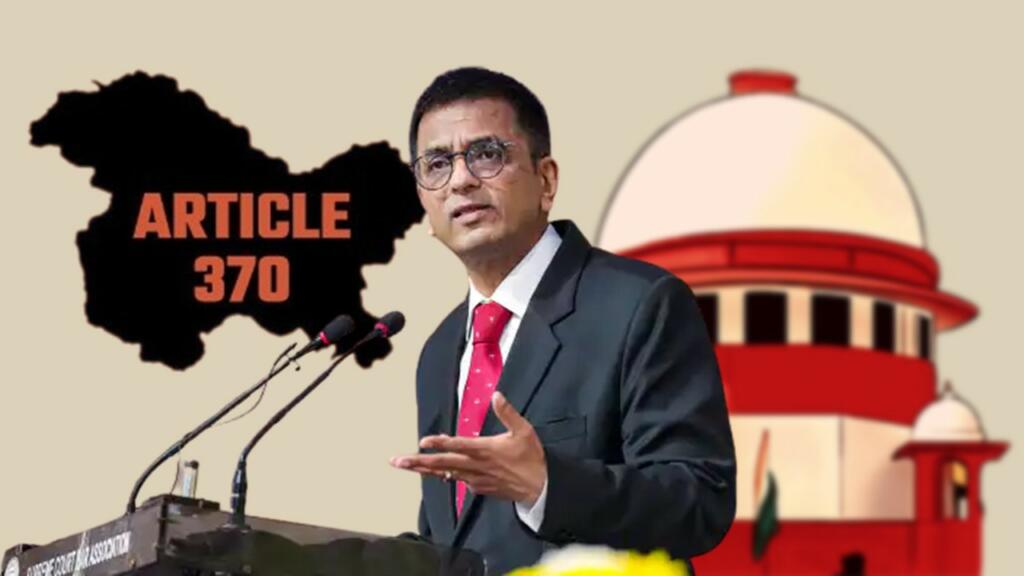Expectations often lead us down unexpected paths, and in Indian judiciary, this sentiment couldn’t have rung truer. Chief Justice of India (CJI) DY Chandrachud, widely known for his liberal approach to sensitive matters, managed to send shockwaves through the legal and political circles. Those who had hoped for his support in reinstating Article 370 were in for a rude awakening.
With no intention of mincing words, the CJI delivered a scathing critique aimed at individuals who advocated for the revival of anarchy in Jammu & Kashmir. It was a resounding denouncement that caught many off-guard.
The crucial moment came during the eleventh day of hearings on a cluster of petitions challenging the abrogation of Article 370 in the context of the erstwhile state of Jammu and Kashmir. In an unprecedented move, CJI DY Chandrachud dismantled arguments in favor of Article 35A of the Indian Constitution, which had been a cornerstone of the debate.
Pointing directly at the issue, he remarked, “See the 1954 order, it applied to the entirety of Part 3 of the Indian Constitution and therefore Article 16, 19 applied to them. If you look at the 1954 order, it applies Part 3, but you bring in Article 35A, which creates exceptions in three areas: employment under state government, acquisition of immovable properties and settlement in the state. Though Part 3 is applicable, in the same vein, when you introduce Article 35A, you are taking away three fundamental rights — Article 16(1), Article 19(1)(f) the right to acquire immovable property, Article 31, and settlement in the state, which was a fundamental right under 19(1)(a). Thus, by enacting Article 35A you virtually took away the fundamental rights.”
The words resonated through the courtroom, leaving little room for interpretation. The CJI’s stance was clear as day: the much-debated Article 35A, which had been hailed as a protective measure, was, in his view, a suppressor of fundamental rights. Tushar Mehta, the Solicitor General of India, conceded the faults highlighted by CJI Chandrachud. He offered an alternative perspective, bringing to light the changes that had unfolded since the abrogation of Article 370. He noted, “Look at the matter from the point of view of the people of Jammu and Kashmir. It brought them at par with other countrymen as well. Till now, people were convinced that Article 370 is not a hindrance to our progress and it cannot be removed. That is what is very sad. Now with no 35A, investments are coming. Now with the policies of the central government, tourism has started. 16 lakh tourists have come till now, and it is generating employment for the masses as well.”
This shift in perspective not only acknowledged the concerns but also highlighted the positive strides that had been made post the changes in the legal landscape. The removal of Article 35A seemed to have catalyzed a momentum in the region, enabling economic growth and fostering a sense of unity among the citizens.
This pronouncement proved to be a seismic blow to certain individuals who had been using the Supreme Court as their platform for dubious maneuvers. In particular, the likes of Kapil Sibal, known for his legal gymnastics, found their ground shaky. The courtroom, which often acted as their playground, suddenly became a much less forgiving arena.
Support TFI:
Support us to strengthen the ‘Right’ ideology of cultural nationalism by purchasing the best quality garments from TFI-STORE.COM
